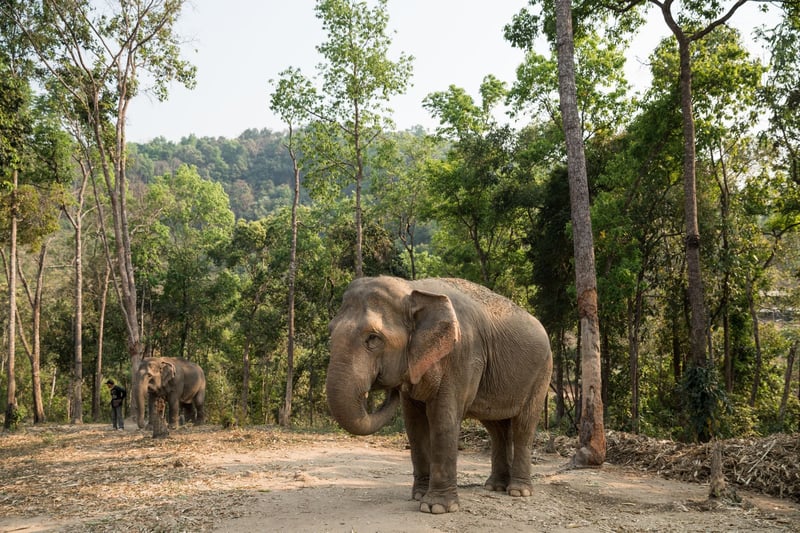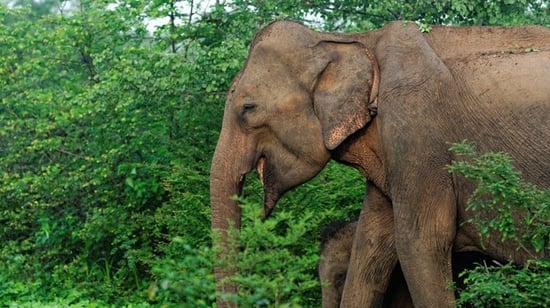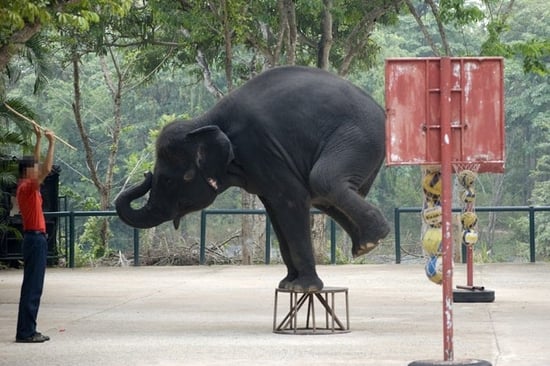
Five quick questions with Lindsay Hartley-Backhouse
News
Lindsay Hartley-Backhouse is a Wildlife Expert with World Animal Protection. Lindsay holds a Master of Science in International Animal Welfare, Ethics and Law; and brings with her 15 years' experience in the field.
We caught up with Lindsay to find out more about her work benefits animals around the world.
1. What prompted the investigation into wildlife tourism in Bali?
As one of the closest places for tourists from Australia and NZ to visit, Bali is a popular holiday destination, and the demand for wildlife tourism there is being fueled by travellers. We knew it was a growing trend, but the scale of the problem wasn’t known until the wildlife team investigated.
2. How does Bali compare to other wildlife tourism destinations in SE Asia?
For elephants specifically, we’ve previously investigated the welfare of captive elephants across SE Asia, particularly in Thailand, in our ‘Taken For A Ride’ report. The welfare problems seen in Bali are also seen in many Thai elephant entertainment venues. Unlike Thailand, in Bali there aren’t any elephant-friendly venues. Elephant-friendly venues are those where the elephants’ lives take priority over tourist demands, and where there is no riding, shows, forced interactions or other concerns including captive breeding. Closer to home, there are venues on the Gold Coast and Coffs Harbour that also allow these sorts of wildlife interactions. It’s certainly not unique to Bali.
3. Elephant rides, dolphin swims and shows, orangutan selfies, turtle encounters and other circus-style shows are becoming increasingly popular with tourists. What’s the problem with these wildlife encounters?
There are many deeply concerning aspects to these encounters, from the sourcing of endangered wildlife for entertainment purposes, to the way that the animals are often cruelly trained and forced to perform tricks for food. One of the most serious concerns is the enclosures and general housing – the way the animals are treated and kept behind the scenes. Our team saw wild animals kept on short chains, in barren concrete cages and, in the case of dolphins, in tiny chlorinated swimming pools.
4. What's the next step and what do you hope will change following this investigation?
As part of the Wildlife Not Entertainers campaign, we’ve been collaborating with key stakeholders, including academic bodies and travel industry associations.
So far, nearly 200 travel companies have signed up to stop selling elephant rides. We are confident this new report will encourage even more companies to stop selling tickets to cruel wildlife attractions. We also want to see travel companies actively educating tourists about the cruelty that goes on behind the scenes.
5. What can individual tourists do to help wild animals?
Tourists need to remember that, if you can ride, hug, or have a selfie with a wild animal, then the chances are it’s cruel, so don’t do it.
They should book with travel companies that have an animal welfare policy, as well as look for alternatives to cruel wildlife tourism. They can visit animal-friendly sanctuaries, where the focus is on observation only, and where there is no forced interaction. Even better, they can see wild animals in the wild where they belong, at a respectful distance.
So far, nearly 200 travel companies have signed up to stop selling elephant rides. We are confident this new report will encourage even more companies to stop selling tickets to cruel wildlife attractions.
Elephant facts
Did you know that elephants can live up to 70 years in the wild, however their lifespan in captivity is generally shorter?
Donate to protect elephants
You can help give elephants the chance to live out their lives in a calm, peaceful environment.



